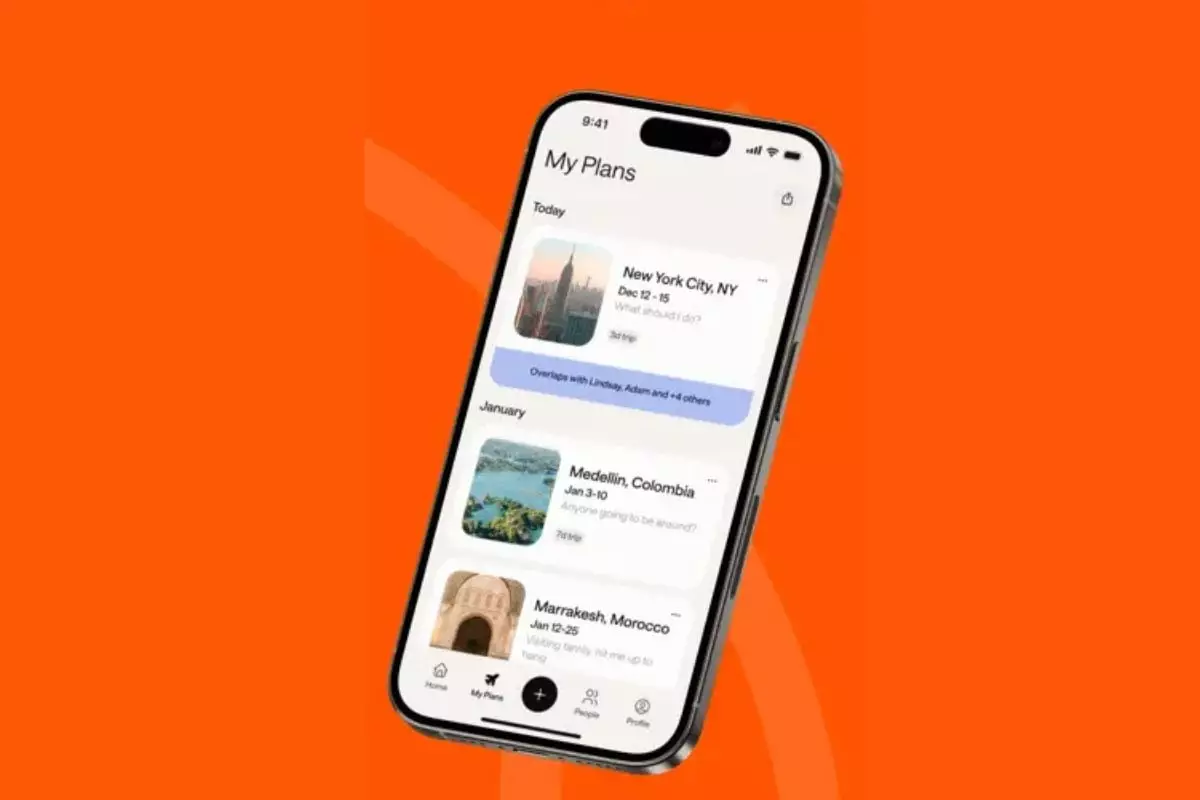In a world where social media has become synonymous with overstimulation, curated feeds, and impersonal interactions, a fresh approach has emerged with the launch of Mozi. Founded by Ev Williams, a familiar figure in the tech landscape, Mozi seeks to redefine how we connect with others, shifting the focus from content creation and follower counts to fostering deeper relationships with the people we already know. This unique platform presents an interesting exploration into an alternative social environment, particularly as it currently exists solely on iOS devices, with future Android accessibility on the horizon.
Unlike traditional social media, which typically thrives on the broadcasting of personal achievements through posts filled with photos and videos, Mozi stands apart by prohibiting such practices. Instead of a constant feed of updates about acquaintances, the platform prioritizes real-life interactions over virtual amplification. Williams emphasizes that Mozi is not designed for sharing content with strangers; rather, it aims to create an intimate atmosphere for friends and loved ones. The app’s functionality revolves around notifying users when they are likely to encounter someone they know in the same physical space, such as events or locations, promoting timely, in-person connections.
The limitations of mainstream social networks often lead to a frustrating cycle of superficiality where individuals can feel connected to vast numbers of users without any genuine engagement. Williams acknowledges this issue and approaches the challenge with a philosophy that carefully sidesteps the typical pitfalls. Mozi refrains from creating public profiles or follower counts that encourage the competitive aspects of social validation. By doing so, it eliminates the anxiety that can accompany traditional social networks, where likes and shares often govern self-worth. In its current form, Mozi provides a sanctuary for those weary of public scrutiny.
Mozi embodies practicality, particularly when it comes to making social plans. Unlike any other platform, it serves as a guide for identifying which social gatherings are likely to be populated with familiar faces. This feature allows users to evaluate their options for weekend events based on the likelihood that friends will also be in attendance. Such a mechanism not only makes event planning simpler but also enhances social experience, allowing individuals to prioritize interactions with known friends over strangers.
One of the standout characteristics of Mozi is its stringent focus on user privacy. By using phone number verification, the app restricts visibility to mutual contacts, fostering a sense of safety and personal space that is often compromised on conventional platforms. Users are further empowered with the ability to limit visibility by marking plans specifically for close friends. This commitment to privacy ensures that conversations and plans remain within a trusted circle rather than spilling into the public domain.
After its soft launch to a smaller selected group, Mozi has garnered positive reactions, with users expressing delight in their newfound ability to connect authentically. Feedback suggests that the app has succeeded in encouraging real-life interactions that provide a refreshing alternative to the often isolating experience presented by mainstream platforms. By offering a unique social environment, Mozi stands poised to develop its user community in this nurturing atmosphere, further validating its purpose.
While the current reach of Mozi is limited, the anticipation for an Android app highlights its potential for growth. As society continues to grapple with the pervasive effects of traditional social media, Williams’ vision could serve as a paradigm shift toward prioritizing authentic, in-person relationships. As Mozi builds its foundation, its promise of a more focused, meaningful social experience sends a compelling message: perhaps, in a digitally saturated world, less truly is more when it comes to connection. By reframing the social media narrative, Mozi might just usher in a new era of digital relationship-building that emphasizes quality over quantity.

